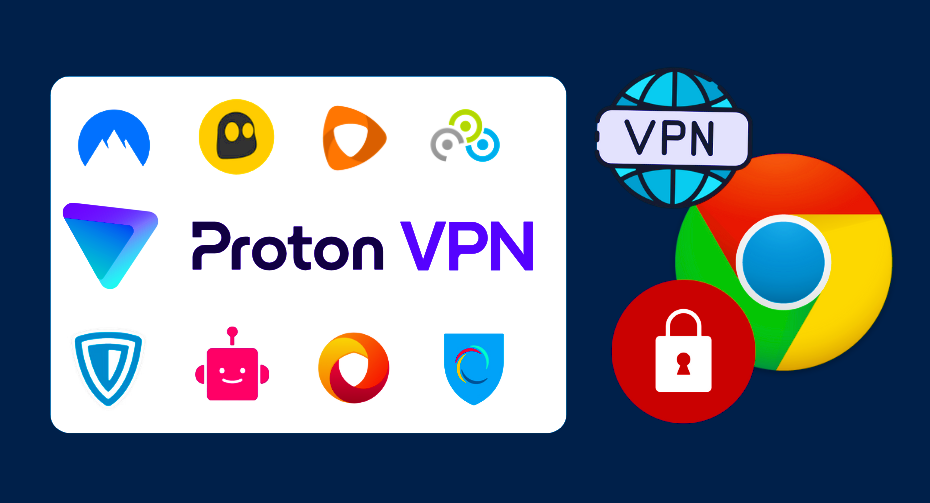Are you willing to unblock a geo-restricted site or want to stream your favourite series after bypassing a geo-blocked channel in your country? If yes, then you must read this article.
Indeed, different companies or governments usually impose geo-restrictions to control access to their content. The content is blocked based on the device’s location.
One great example is Netflix, which offers different depending on your location. If you’re based in the UK, you will be forwarded to the UK version of their website. Then, you won’t be able to access some US-exclusive shows, for example.
Why Can’t Access Certain Websites?
This usually happens because of licensing rights or censorship. Some countries, such as China, block certain websites so outside media won’t influence their people.
Geo-restrictions are imposed by tracking the user’s IP address. Every device has a unique IP address, which reveals information about the user and their location. When you connect to a geo-restricted website, your IP will be scanned. If not local, you won’t be able to access any content on that particular website. Luckily, this can be remedied with a couple of simple, yet useful tools.

How to Unblock Geo-Restricted Content
1. Use SmartDNS
Every device has its DNS address assigned by the internet service provider. The DNS address reveals the device’s geolocation, which is why you come across blocked content. SmartDNS changes your computer’s original DNS address, enabling you to access geo-restricted content.
SmartDNS is great because it only changes specific details about the connection instead of the whole connection. That means your overall internet speed won’t be affected. The only downside is that SmartDNS doesn’t offer data encryption, which can impose certain security risks.
Pros:
Cons:
2. Use Proxies
Proxy servers are like a medium between the user and the internet. When trying to connect to a website, you usually use the direct connection through your device and its IP address. This is how geo-restricted websites recognize your location and impose restrictions.
However, proxies connect to sites on your device’s behalf, enabling you to bypass nearly all limitations. They hide your computer’s IP address and help preserve your online anonymity. Unfortunately, they don’t offer any encryption, meaning your data could be intercepted. But, the lack of encryption also means your connection would be faster.
Pros:
Cons:
3. Use a VPN
VPNs stand for virtual private networks, and it is a type of software that masks the user’s original IP address and assigns a new location. Because geo-restricted content is blocked by location, you can easily connect to a local server and lift all restrictions. In short, VPNs conceal your real location and provide you with a new, virtual one. You can use VPNs on both computers and mobile devices, making it extremely convenient.
Moreover, VPNs usually come with an extensive set of advanced features that keep your computer and your data safe when browsing the web. The only downside, though, is that you can’t use VPNs on devices such as Xbox, Chromecast, or Apple TV.
If you aren’t sure whether this is the right solution for your needs, you can always sign up for a free trial. You can also find some discount codes online to get a better price when finalizing your purchase. All you need to do is type in the VPN provider’s name and look for discount coupons (e.g., NordVPN coupon) – sometimes, you can even score up to a 70% discount!
Pros:
Cons:
Use the Tor Browser
Lastly, you can always opt for the Tor Browser, which is free and disguises your device’s IP address. This is a dedicated web browsing solution that utilizes the Onion concept. That means that user data is encrypted and transferred through various servers. Then, every encryption layer gets decrypted, and the process goes on until you reach your desired web destination.
However, Tor Browser might be blocked in some countries, so make sure to check before downloading it.
Pros:
Cons:
Bypassing Geo-Blocking Is Illegal?
It is a general question that many of our readers ask whenever we suggest any VPN-related service. Indeed, our answer is “no”. Yes, bypassing geo-blocking or geo-restricted content is not illegal, and the use of VPNs is entirely legal in the United States and many other countries of the world. You won’t be fined or arrested if you try to read the New York Times in China by bypassing geo-restrictions or streaming any Netflix Turkey series in the United States.
However, it could be against the TOS of any company like Netflix, but it is not as illegal. DigitalCruch would also love to know its readers’ views on this. You can use our commenting section or our email address for feedback.



